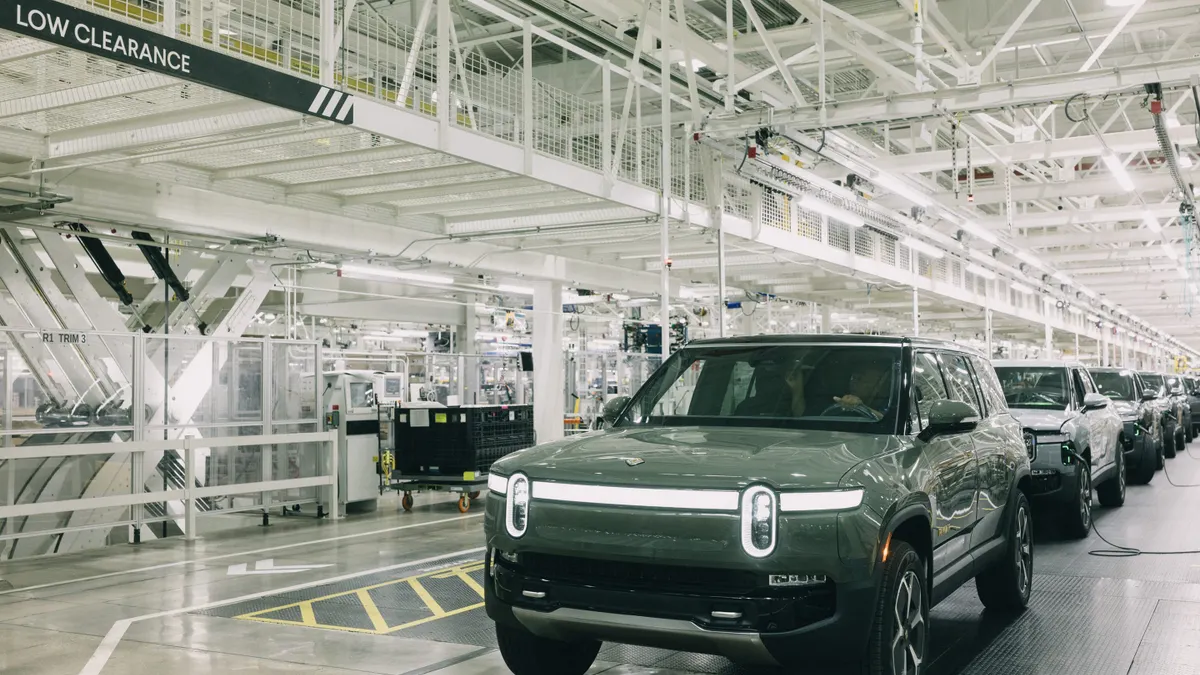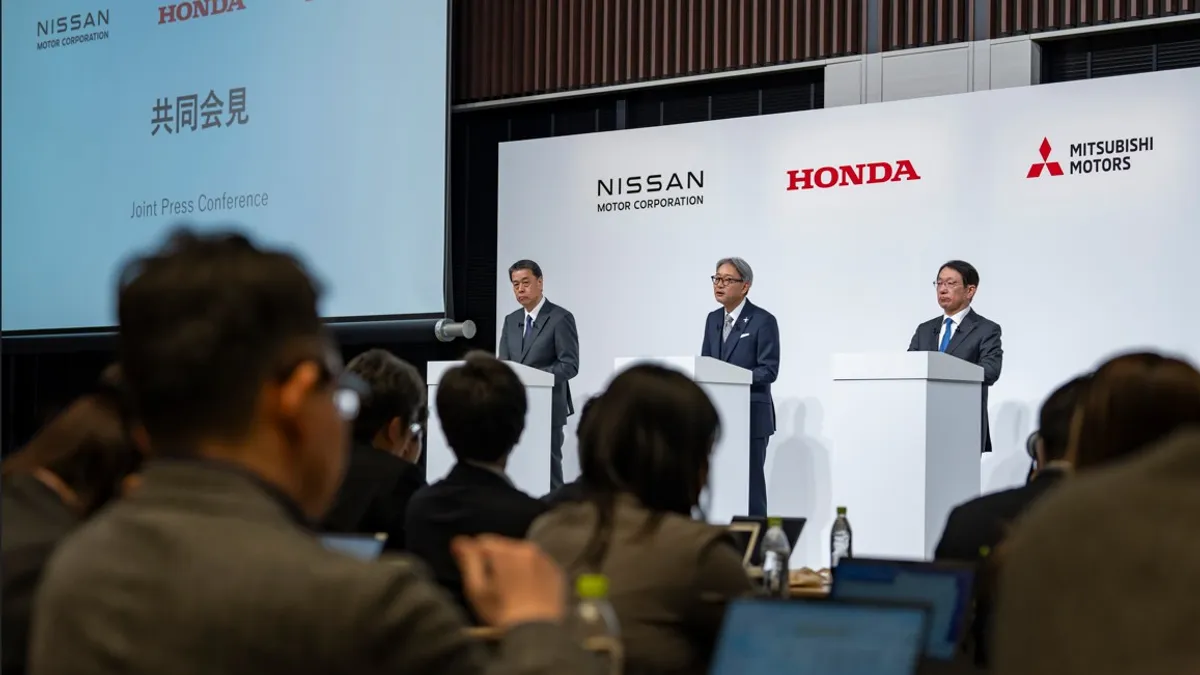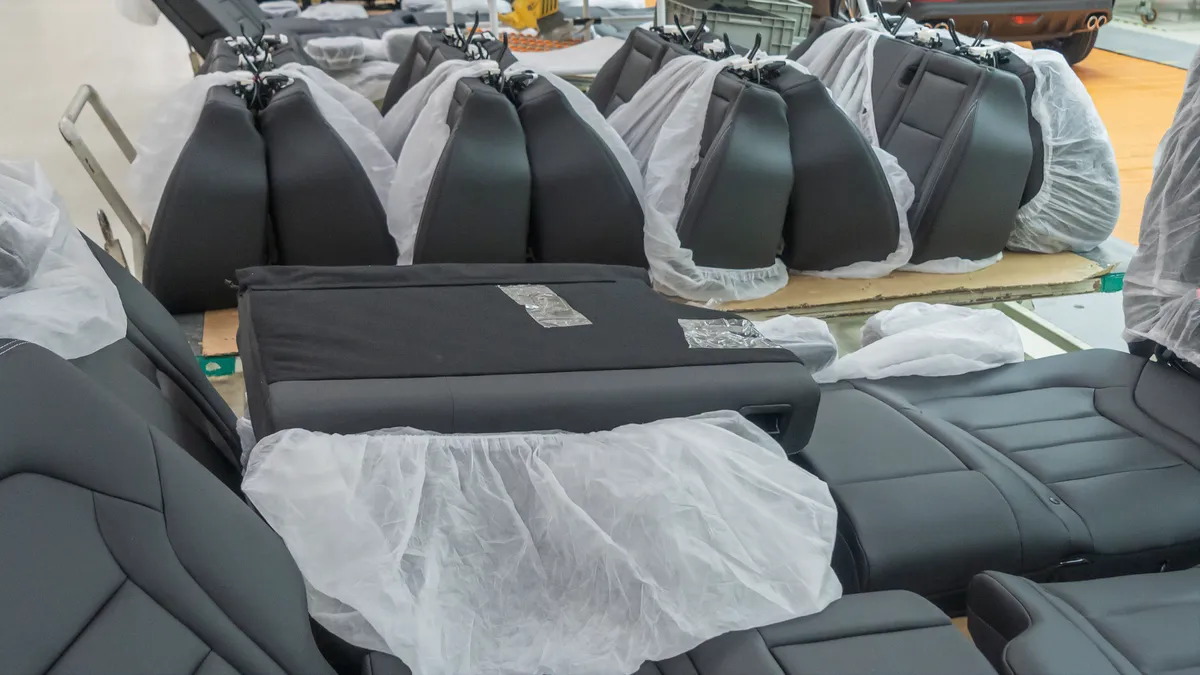Dive Brief:
- Electric vehicle maker Rivian achieved its second consecutive quarterly gross profit in Q2, which triggered a $1 billion cash infusion from partner Volkswagen Group, CEO and founder RJ Scaringe said during a call with analysts May 6.
- The funds, which executives expect to receive by the end of June, will aid Rivian in deploying its technology and software stack to a wide array of vehicles by capitalizing on VW’s scale as it pushes for broader EV adoption, according to Scaringe.
- “The relationship there continues to progress really well,” Scaringe said of the partnership. “At this point, we're very focused on executing a lot of programs across the Volkswagen Group.”
Dive Insight:
In addition to financial support from VW, Rivian’s efforts to scale production has also been bolstered by a $6.6 billion Department of Energy loan finalized in January to revive the company’s stalled Georgia EV factory project, which is expected to start production by 2028.
The company is also investing $120 million in Normal, Illinois, where it is constructing a supplier park meant to create an electric vehicle manufacturing ecosystem next to its production plant where it is building the R2 SUV.
However, like other automakers, Rivian also faces tariff-fueled headwinds necessitating plans to offset higher duties on automotive parts, especially battery components.
CFO Claire McDonough said on the call that the company expected “per unit direct impact from tariffs to be a couple thousand dollars for 2025 based off of the currently announced tariffs in place.”
Rivian’s chief concern is rising cost for battery materials. McDonough said while the company’s stockpile of batteries is sufficient to carry its production through early 2026, it continues to monitor export restrictions on rare earth minerals from China.
“We are actively monitoring these developments and working to mitigate potential risks through a variety of initiatives, including strategic sourcing and proactive engagement with policymakers,” she said.
Higher component costs due to tariffs moved Rivian to raise its capital expenditure guidance to between $1.8 billion and $1.9 billion. Uncertainty fueled by economic policies also led the company to revise its delivery outlook to 40,000 to 46,000 vehicles, down from 46,000 to 51,000 announced April 2.
But Rivian believes higher production costs may be short-lived as it works with suppliers, including LG, to secure domestically produced batteries. Scaringe said the R2 uses the 4695 cell format currently sourced from Korea, but that will soon change.
“We've been for a while now working very closely with our partner on this, which is LG, to localize that into the United States and starting in 2027 those cells will be produced in Arizona,” he said.














